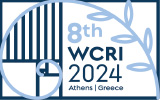
Keynote Speakers
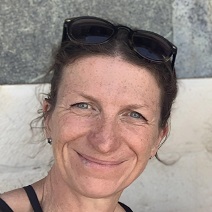
Liz Allen
Plenary B: The future(s) of reproducibility: how reproducibility reform improves research integrity
Director of Strategic Initiatives F1000
Visiting Senior Research Fellow, Policy Institute at King’s College London
Liz is Director of Strategic Initiatives at F1000, part of the Taylor & Francis Group, and involved in shaping new initiatives and partnerships to promote and foster open access and open research publishing.
Prior to joining F1000 in 2015, she spent over a decade leading the Evaluation Team at the Wellcome Trust. Liz is a Crossref Board Director, co-founder of CRediT (Contributor Roles Taxonomy), and serves on the Advisory Board for the Software Sustainability Institute. Liz was also one of the first Board Directors at ORCID and involved in its establishment from 2010.
Since 2015, Liz has been a Visiting Senior Research Fellow in the Policy Institute at King’s College London, with a particular interest in science policy and research-related indicators.
Liz Allen – orcid.org
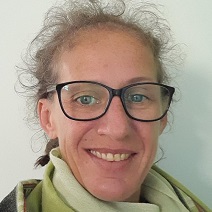
Michelle Brear
Plenary C: The 7th WCRI Cape Town statement on fostering research integrity through fairness and equity one year on
Michelle is a public health social scientist with more than ten years’ experience working in research partnerships in southern Africa. She combines empirical research about community-based and participatory health interventions, with enquiries about the equity of partnerships, including community-based health intervention and various research partnership. Michelle has extensive experience designing and implementing tools to stimulate critical thinking and generate data about health and research partnerships. She has published the results of her research about partnerships in a range of international journals, including Qualitative Research, Global Public Health and the Journal of Empirical Research on Human Research Ethics.

Jessica Cerdena
Plenary E: Tackling racial and ethnic bias when translating research into policy
Dr. Cerdeña received her MD-PhD in Medical Anthropology from Yale University where she began using scholarship and activism as tools for health justice. Dr. Cerdeña co-coined the term “race-conscious medicine” to emphasize how racism, rather than race, determines illness and health. She recently published the book Pressing Onward: The Imperative Resilience of Latina Migrant Mothers, which narrates the ways women who migrated from Latin America overcome structural oppression to build futures for themselves and their children. Dr. Cerdeña is currently completing her family medicine residency and will continue working at the intersection of research, community-oriented primary care, and health policy.
Mabel Chew
Plenary E: Tackling racial and ethnic bias when translating research into policy
Mabel Chew is Senior Editor at The Lancet and a primary care physician in Sydney, Australia. She was previously Practice Editor at The BMJ for 10 years, following 8 years as Deputy Editor at the Medical Journal of Australia. With a longstanding interest in publication ethics, she has helped develop journal competing interests policies. She is co-Chair of The Lancet’s Group for Racial Equity, Subcommittee member of the Joint commitment for action on inclusion and diversity in publishing, and Council Member of COPE (Committee on Publication Ethics). She was previously Lecturer in the Department of General Practice, University of Sydney.
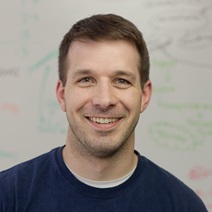
Timothy Errington
Plenary B: The future(s) of reproducibility: how reproducibility reform improves research integrity
Tim Errington is the Senior Director of Research at the Center for Open Science (COS) that aims to increase openness, integrity, and reproducibility of scientific research. In that position he conducts and collaborates with researchers and stakeholders across scientific disciplines and organizations on metascience projects aimed to understand the current research process and evaluate initiatives designed to increase reproducibility and openness of scientific research. These include large scale reproducibility projects such as the Reproducibility Project: Cancer Biology and the DARPA supported Systematizing Confidence in Open Research and Evidence (SCORE), and evaluation projects of new initiatives such as open science badges and Registered Reports.
Errington received his PhD in Microbiology, Immunology, and Cancer Biology from the University of Virginia, MA in Molecular and Cell Biology at University of California Berkeley, and earned a BS in Biology and Chemistry at St. Lawrence University.
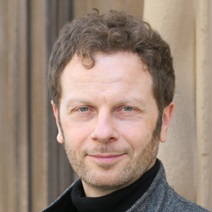
Daniele Fanelli
Plenary A: The effects of Research Integrity on innovation and policy making
Daniele Fanelli is Assistant Professor in Social Research Methods at Heriot-Watt University and visiting Fellow in Quantitative Methodology at the London School of Economics. He has published numerous influential studies assessing the prevalence and causes of research misconduct and bias, and has developed novel approaches to quantify scientific knowledge and the level of scientific consensus. He is a member of the Committee for Ethics and Bioethics of Italy’s National Research Council and of the Luxembourg Agency for Research Integrity, and he is the founder of comCensus.org, a platform that aims to promote a more inclusive approach to policy making.
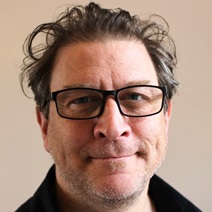
Ed Gerstner
Plenary C: The 7th WCRI Cape Town statement on fostering research integrity through fairness and equity one year on
Dr Ed Gerstner has over two decades of experience in scholarly publishing, with stints as an editor with various Nature journals. He spent 6 years building Nature’s and subsequently Springer Nature’s editorial presence in China, has spoken at over a hundred universities and research institutions around the world, and has travelled extensively to try to better understand the challenges that researchers, particularly those in Global South, face. In his current role as Director of Research Environment Alliances, he’s responsible for building alliances with research institutions and community organisations that are working to improve the way research is done through initiatives that contribute to better research ethics, rigour and integrity, greater openness and transparency, and improving academic diversity, equity and inclusion.
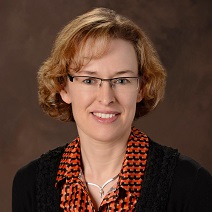
Anja Gillis
Plenary A: The effects of Research Integrity on innovation and policy making
Anja Gilis is global Compliance Head in the Preclinical Sciences and Translational Safety department of Janssen. Anja took up a lead role in streamlining and enhancing best practices on data integrity and traceability for non-regulated research across the Janssen Pharmaceutical companies of Johnson & Johnson, covering both internal and outsourced research and including the establishment of global guidelines, communication and training programs and a governance model. Anja has participated in IMI project EQIPD (www.eqipd.org) as work-package co-lead on the development of a flexible and fit for purpose quality management system for non-regulated biomedical research and as advisory board member in the ‘Standard Operating Procedures for Research Integrity’ (SOPs4RI) project (www.sops4ri.eu).
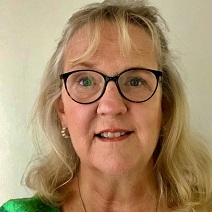
Lyn Horn
Plenary C: The 7th WCRI Cape Town statement on fostering research integrity through fairness and equity one year on
Lyn Horn is currently the Director of the Office of Research Integrity at UCT She is a medical doctor with a PhD in Bioethics. She worked as a clinician in the public health sector for the first twenty years of her career before transitioning to an academic work environment in 2004. Her academic interests include public health ethics and social justice, research ethics and more recently research integrity. She has been a member or chair of research ethics committees for the last 15 years (in both the biomedical and humanities domains). In her current position at UCT she is involved in promoting the responsible conduct of research across the university. In 2022 she was the South African Co-Chair for the 7th World Conference on Research Integrity held in Cape Town. She also led the process of developing the Cape Town Statement on Fostering Research Integrity through Equity and Fairness (publication in process).
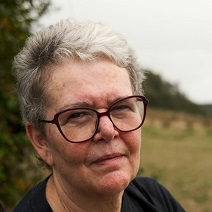
Deborah Kahn
Plenary D: Addressing the challenge of paper mills through research and policy
Deborah Kahn has a long career in scholarly publishing, most recently in senior management positions at Taylor & Francis and Springer Nature. Her experience includes books, journals and databases, print and electronic, subscription and open access, not-for-profit and commercial publishers. Deborah has an advanced understanding and experience of ethical issues in research and journals publishing. At BMC, she created one of the first Research Integrity teams in a publishing company. She is currently a Trustee and Council member of COPE.

Theo Karapiperis
Plenary A: The effects of Research Integrity on innovation and policy making
Theo Karapiperis studied Physics at Sussex (BSc) and MIT (PhD). He worked in research, and later at the European Parliament, including in the Secretariats of STOA (Panel for the Future of Science & Technology) and the Industry, Research & Energy Committee, and as head of the Policy Department for Scientific Policy.
From 2010 until his retirement (2022) he was head of a unit comprising the STOA Secretariat, the Scientific Foresight Service (created in 2014), the European Science-Media Hub (since 2018), and STOA’s Centre for Artificial Intelligence (since 2019). In April 2022 he was elected to the Governing Board of EuroScience.

Thirusha Naidu
Plenary E: Tackling racial and ethnic bias when translating research into policy
Dr Naidu is associate professor at the University of KwaZulu-Natal and a clinical psychologist practising in the public health context in South Africa. Her research focus is equity in global medical education and global health, inspired by her experiences as Global South researcher in global health, mental health and infectious diseases (HIV and MDR-TB, FGS etc). Over the course of her career as a researcher and health professional Dr Naidu has worked consistently with marginalised and racialised women in the Global South. She interested in how mental health can be integrated into healthcare and works consistently with her health professions students with develop opportunities for longitudinal clinical experiences and relationships in health professions training. Her research focuses on global medical education from critical and theoretical perspectives including decolonial and feminist theories. Dr Naidu is interested in how research, authorship and scholarship practices shape dominant and marginalised narratives in medical education research, teaching and clinical practice and which may contributed to fragmented care narratives and practices. She uses research poetry as a method for deep reflexivity to document, present and illustrate research findings. Her published work has appeared in The Lancet and The Lancet Global Health. She has several multinational research collaborations across the Global North and Global South and participates in several global education and research forums.
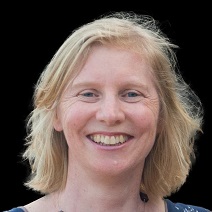
Lisa Parker
Plenary D: Addressing the challenge of paper mills through research and policy
I am a bioethicist, researcher and practicing medical doctor. My research focuses on critical evaluation of healthcare practice, policy and evidence. I use qualitative research methods to explore threats to the integrity of our scientific evidence base and understand how best to identify, manage and prevent those threats. My recent projects include identification of research fraud, exploring solutions to correct and prevent scientific misinformation, and managing conflicts of interest in health. I have academic affiliation with the University of Sydney and practice clinically in radiation oncology.
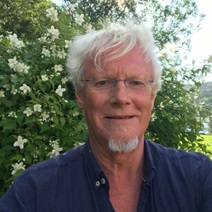
Jan Helge Solbakk
Opening Plenary
Jan Helge Solbakk, MD, ThM (Protestant theology), PhD (ancient Greek philosophy) is Professor of medical ethics at Centre for medical Ethics, University of Oslo since 1996. In the period of 1998-2011 he also served as Adjunct Professor in medical ethics and epistemology at Centre for international health, University of Bergen. In 2007 and 2008 he was Head of UNESCO’s global program in bioethics.
Solbakk has coordinated or been partner in 22 different research and capacity building projects pertaining to foundational issues in bioethics, bioethics teaching, research biobanking, open science, organoid research, personalized medicine, research ethics, research integrity, stem cell research and nanomedicine. Since September 2022 he is PI and coordinator of an ERC advanced grant, Moral residue – epistemological ramifications, ethical implications, and didactic opportunities (MORE, ID: 101054147). Most of his publications are one author publications.
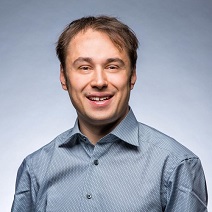
Thomas Stoeger
Plenary D: Addressing the challenge of paper mills through research and policy
Thomas Stoeger is an incoming Assistant Professor at Northwestern’s Feinberg School of Medicine. He trained in molecular systems biology at the University of Zurich, where he received the Annual Award for the best PhD thesis of the Faculty of Science. For his postdoctoral training, he joined Northwestern University where he gained support by an NIH postdoc-to-tenure-track award. He assembled a knowledge base, harmonizing over 89k experiments and 250+ data sources to boost scientific discovery. This necessitated the detection of scientific biases and suspected fraud. The focus of his biological research lies in the biology of aging.
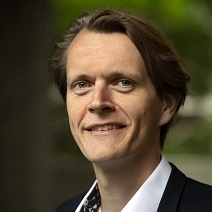
Joeri Tijdink
Plenary B: The future(s) of reproducibility: how reproducibility reform improves research integrity
Joeri Tijdink is a principal investigator at Amsterdam UMC and affiliated with VU University in Amsterdam, the Netherlands. His main research focusses on research integrity, reproducibility, mental well-being in academia and research culture. He is currently involved in several research projects, including the TIER2 project (www. tier2-project.eu) which explores the future(s) of reproducibility. He is also the author of the book “The Happy Academic”; a book that provides guidance for early career researchers navigating academia’s torments (2023). Apart from his work as a researcher, he works as a clinical psychiatrist. Recently, his appointment as member of the Young Academy from the Royal Society of Arts and Sciences in the Netherlands underscores his commitment in improving research quality and making academia a better place.
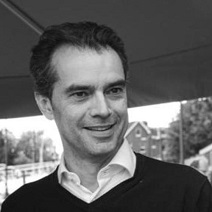
Joris Van Rossum
Plenary F: Perspectives on Research Integrity and Generative Artificial Intelligence
Joris van Rossum is Program Director of STM Solutions and serves as Product Director for the STM Integrity Hub.
Joris leads various programs and projects within STM Solutions, with a special focus on the STM Integrity Hub and AI.
Before joining STM, Joris worked for several leading companies and organizations across the STM publishing space, including Digital Science and Elsevier, where he initiated and led a variety of important innovations and cross-publisher initiatives within the research and publishing ecosystem.
Joris holds a master’s degree in biology and a PhD in philosophy.
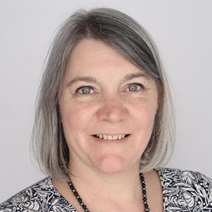
Karin Verspoor
Plenary F: Perspectives on Research Integrity and Generative Artificial Intelligence
Professor Karin Verspoor is Executive Dean, School of Computing Technologies at RMIT University in Melbourne, Australia. She is a Director of BioGrid Australia, a Fellow of the Australasian Institute of Digital Health, and co-founder of the Australian Alliance for Artificial Intelligence in Healthcare. Karin is an expert on artificial intelligence and its use in analysis of research literature and scientific data. Her work has applied natural language processing methods to enable text mining of scientific literature, and to transform research papers and patents into structured knowledge and actionable information. Recently, she has applied AI to analyse biological database quality and enable systematic review automation.
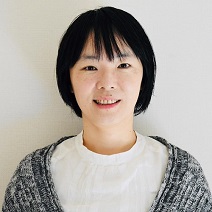
Shanshan Yu
Plenary F: Perspectives on Research Integrity and Generative Artificial Intelligence
Dr. Yu joined Fujitsu Laboratories in 2006 and has been consistently engaged in research and development related to human centric technologies. She is currently a senior research manager of AI Trust Research Center at Fujitsu, leading the way in the development of technologies that comprehensively solve the quality issues of AI, such as the evaluation and discovery of the weakness of AI models and the provision of accountability of AI, which are important to support decisions in the domains that have significant impact on a person’s activities and make research at Fujitsu contribute to our society.
